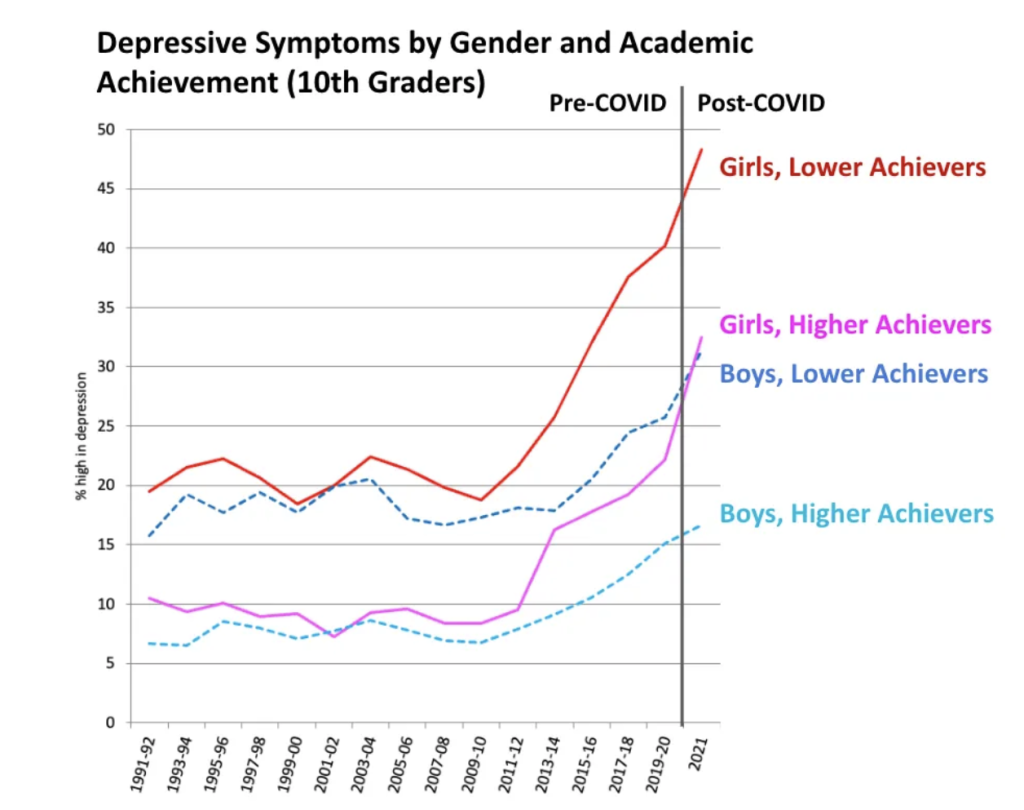Folks, it’s that time of year again! After a long hot summer, school is back in session. For some parents, the returning school year may signify a break from an exhausting summer schedule. For others, it may be a bittersweet ending to much needed quality family time. Regardless, a new school year is upon us, so I wanted to take the time to address an issue that has been at the forefront of my mind all summer long.
Once the 2022-2023 school year ended, I reflected on how I can be more effective in my role as the Community Liaison and Youth Event Coordinator for NPC. After some thought, I concluded that much of my effort needs to focus on the growing mental health crisis amongst our youth. National and local data trends have confirmed we have a growing crisis on our hands. In addition, my experience on the ground has validated what the numbers have borne out. The turmoil amongst our youth is palpable. The million-dollar questions are what is causing this crisis and what do we do about it?
Realistically speaking, this is a multifaceted issue, but I believe I know where we can get the most bang for our buck. I posit that possibly the most effective way to alleviate mental health struggles for your child this upcoming school year is to reform the use of their smartphone, particularly their social media use. I’ve had this supposition for years and it was only deepened when I heard Dr. Twenge speak earlier this year. Dr. Jean Twenge is one of foremost researchers on the topic of how smart phones affect our teens. We had the privilege of hosting an exclusive lecture by Dr. Twenge this past March. She presented her main findings from her book “iGen” along with other research she’s done on the topic.
She explained that clinical level depression doubled between 2011 and 2019 among U.S. 12- to 17-year-olds [3]. In her opinion, that stark rise can mainly be attributed to the fact that 2012 is the first year when the majority of Americans became smart phone owners. This sharp decline in teens’ mental health has persisted despite changes in our culture, economy, politics, and various other factors. Teen mental health decline has been the one constant over this past decade. In this short video listed below, Dr. Twenge gives a succinct analysis of the issue during a TED talk. I highly encourage you to take a moment to watch, so you can better understand how we got here.
I want to be clear, there are a multitude of things that can affect our teen’s mental health. Adverse childhood experiences, substance misuse, poor physical health, social obstacles, just to name a few. The bottom line is being a teenager is hard, which is why we should not exacerbate their struggles. Instead, we should try to protect them from the harmful effects that smartphones can cause. I believe smartphone use is a detrimental catalyst to any issues our teens are struggling with independent of their online activity.
For example, one theory that I’ve heard floated for the origin of this crisis is that our teens are under severe academic pressure. I was sympathetic to this theory but upon further investigation I fear this is another misdiagnosis of the root cause. Dr. Twenge debunked this theory in a Substack article she wrote entitled, “Academic Pressure Cannot Explain the Mental Illness Epidemic.” She explained that according to Monitoring the Future Survey, which has gathered self-reported data from students since the 90’s, students are spending significantly less time on homework than previous generations. Moreover, competition for grades amongst students is also at an all-time low.
Still skeptical? Take a look at this chart below.

This chart examines the depression rates of students by gender and academic achievement. High achievers are categorized by students who maintain an overall grade average of an A- and above. Check out how there appears to be normal fluctuations up until the year of 2012 and then depression rates amongst all groups begin to skyrocket. Dr. Twenge eloquently summarizes this trend in her Substack article when she writes, “Of course, many factors can cause depression, and academic pressure may certainly be the cause of some cases. But we’re not trying to explain all cases of depression; we’re trying to explain why teen depression increased so much after 2012. Given that homework time has declined (and was never high to begin with compared to screen media time), given that teen-reported academic pressure has primarily declined over this time, and that teens under more academic pressure are actually less likely to be depressed, the evidence I’m able to find in the Monitoring the Future study contradicts the academic pressure hypothesis. [1]”
I chose to highlight the academic pressure hypothesis specifically because it fits well within the “Back-to-school” theme of this article. Yet, this is just one area of many that needs deeper exploration into how smart phones can exacerbate the issues that our teens face. We NEED to give our children a fighting chance and this is one area where I believe we can get effective results. So, what can you do? Fortunately, Dr. Twenge has three simple rules that she recommends all parents implement to drastically reduce the potential harm of smartphone use.
- No phones or tablets in the bedroom at night. (If they need an alarm clock, have them use an actual alarm clock.)
- No using devices within an hour of bedtime. (Being on your phone before you go to sleep can have a large impact on your quality of sleep which is an important factor for depression.)
- Limit device time to less than two hours of leisure time a day. (This does not include homework.)
These may seem like miniscule changes, but they can go a long way. If you would like more information on why monitoring smartphone use is important for your child’s development, I encourage you to check out more articles that Dr. Twenge has written. Here’s to a great school year!
[1] https://jonathanhaidt.substack.com/p/academic-pressure-social-media
[2] https://time.com/5555737/smartphone-mental-health-teens/
[4] iGen: The Smartphone Generation | Jean Twenge | TEDxLagunaBlancaSchool

